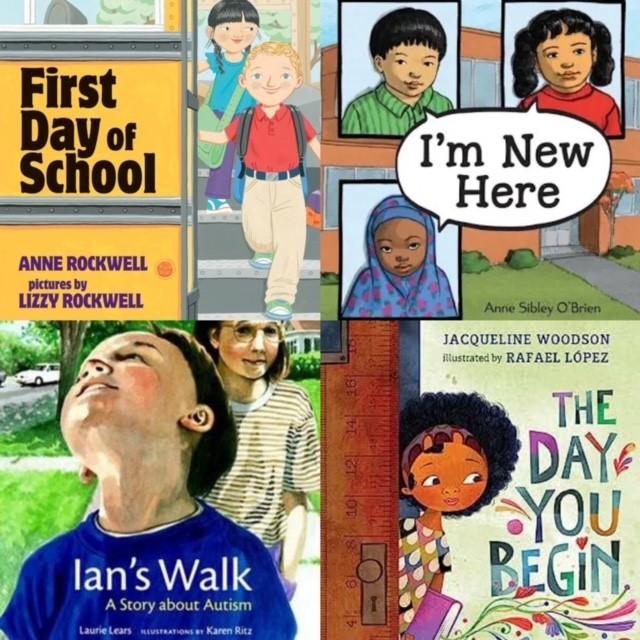
September is a time of big transitions. . . and books can help!
The beginning of fall might mean a transition for a young child in your life. Maybe they are starting preschool or kindergarten. For infants and toddlers, a transition can simply be a shift in the daily rhythm and routine as the school year begins. Big or small, transitions are a part of life, especially for young children, whose brains and bodies are changing rapidly.
Caregivers are often looking for ways to help young children navigate through big life transitions such as beginning school, welcoming a new sibling, changes in family structure, moving, or coping with illness or the loss of a loved one. These transitions can be overwhelming for adults as well. Sharing a developmentally appropriate book with a child can make a difference in how both the child and their caregiver cope with transitions together. Reach Out and Reach RI has books about many topics listed here. We encourage our RORRI providers to contact us if they would like to have these books for patients and families in their practices.
How can books help?
Books can provide children with a critical connection between spoken language and images that help them process and organize their thoughts and feelings. Young children make sense of their world based on past experiences. If the school is brand new, they may have few mental images to draw on. For most children, not knowing what to expect can leave them feeling anxious and insecure.
Imagine that your friend invites you to see a movie that they think is great but doesn’t tell you what it is about. You might feel a little apprehensive. Is it a comedy? Is it scary or sad? Most of us would want to see a preview before we accept the invitation. Children are no different. Books can give children a “preview” they need to shape their understanding of something new.
What book do I choose?
That depends on the child’s age and development. A 2 or 3-year-old going into preschool for the first time might benefit from a short simple story about a parent or caregiver leaving and coming back again. For a 5-year-old who is more confident about leaving a parent but has never been on a school bus, a book that features a bus might be just what they need.
Books help build new connections.
Books can help children form questions and process feelings they might not otherwise be able to express. Reading with a caring adult or even just noticing the way a child reacts to the pictures in a book can give a caregiver a window into a child’s inner thoughts, even if they don’t yet have the language to express them.
Repetition is key!
Young children often want to hear the same book read again and again. Parents and caregivers might roll their eyes at the tenth or hundredth request but there is a good reason! Sometimes children simply love a book and seek joy, comfort, and a connection to a loved one. When children request the same books about a big transition, it is often a sign that they are working toward understanding something that might feel challenging, exciting, or a little scary. Chances are once they are feeling comfortable, they won’t ask to read it again for a long time. Take the opportunity to read the book one more time. It might help more than you think.
RORRI Special Topics Collection:
- Adoption
- Anxiety and Worry
- Autism
- Sibling and Friend with Autism
- Downs Syndrome
- Hearing impairment
- Visual Impairment
- Gender Identity
- Grief and Loss
- Immigration
- Racial/Cultural Identity
- Starting School
- Moving
- Military Families
- New Sibling
- Family Identity
- Potty Training
